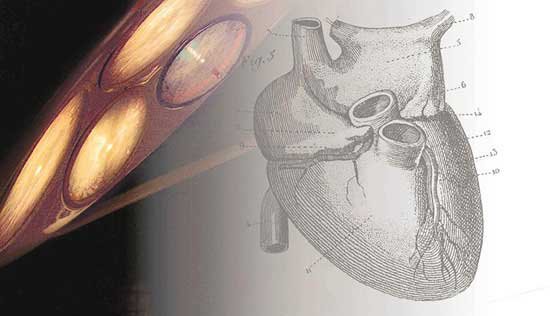Donation of organs promoted at Chamber
ALYSON VAN DEUSEN
alyson@thespectrum.com
ST. GEORGE - An Intermountain Donor Services spokesman touted the importance of becoming an organ donor Wednesday during the St. George Area Chamber of Commerce's weekly luncheon at Dixie State College.
About 270 people in the Utah, Idaho and Wyoming region are waiting to receive an organ transplant, said Alex McDonald, the director of public education and public relations for the company.
About five or six chamber members asked questions during the presentation, including if a person could donate after being in hospice.
"It's always interesting to see what they can do to help people," said chamber member Scott Stahle, who works at Today in Dixie.
About one in 80 people in Utah that die are eligible to be organ donors, McDonald said.
The number of eligible donors is so low, McDonald said, because eligible donors must die in a hospital on a ventilator.
But Utah does have the highest percentage of organ donors in the United States.
One person can potentially make nine donations.
The heart, liver, lungs, kidneys, pancreas, and intestine can all be donated, McDonald said.
Two people can each receive a lung or kidney, and the liver can go to one adult and one child, he said.
"Transplants are extremely successful," McDonald said.
One liver recipient is living 35 years after his transplant, he said.
People can also make tissue donations, McDonald said.
Tissue donations include skin, long bones in the arms and legs, blood vessels, abdomen and legs, cartilage and ligaments, and heart valves, he said.
Many transplants are successful, but there are still misconceptions about being a donor, McDonald said.
Some people believe hospitals won't make the same amount of effort to revive or save an organ donor as they would a non-donor, McDonald said.
But that is not the case.
"The No. 1 priority of hospital staff is to save your life," he said.
McDonald also said most medical conditions do not prevent a person from being a donor. Only people with HIV/AIDS or active cancers cannot be organ donors.
People can also choose to donate bone marrow and blood while they are alive, McDonald said.
"I didn't realize how many uses they had for organs," said Patricia Sheffield, director of the Washington County Children's Justice Center.
Sheffield said she is already an organ donor, but that the presentation reaffirmed her support for the program.
"Now I know for sure it's the right thing to do," she said.

No comments:
Post a Comment